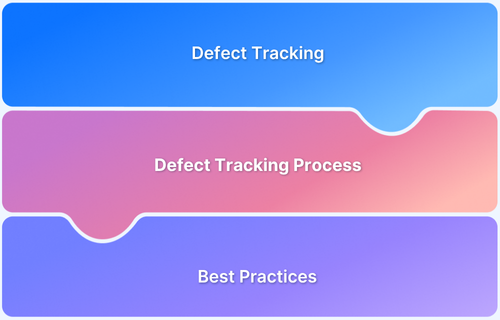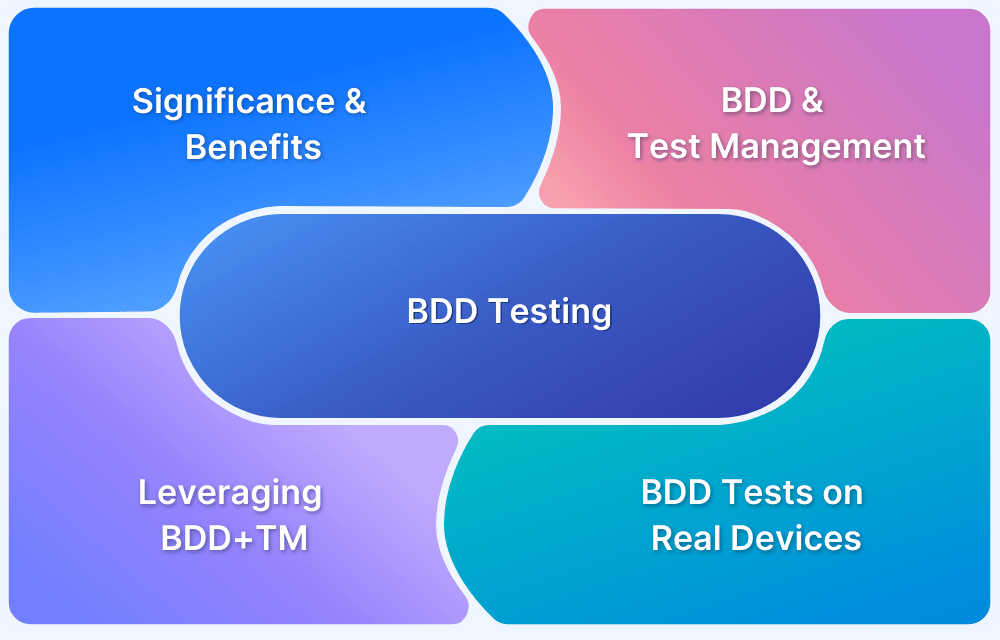Quality Assurance (QA) managers play a pivotal role in maintaining product quality while adapting to the fast-paced, iterative nature of Agile development. They ensure that testing aligns with business goals, team workflows, and continuous delivery pipelines.
Overview
Who is a Test Manager?
A Test Manager is a quality assurance professional responsible for overseeing the planning, coordination, and execution of all testing activities within a project or organization.
Test Manager’s Roles and Responsibilities
In Agile environments, test managers must balance leadership with adaptability to support dynamic teams and evolving project needs.
- Strategic Planning: Define QA goals, KPIs, and test strategies aligned with Agile sprints and release cycles
- Team Enablement: Mentor testers, foster collaboration, and ensure skill development
- Test Process Oversight: Implement and improve Agile-friendly test processes like continuous testing and shift-left practices
- Stakeholder Communication: Act as a bridge between QA, developers, product owners, and business stakeholders
- Metrics and Reporting: Track test coverage, defect trends, and release readiness with actionable insights
This article highlights the evolving responsibilities of QA managers in Agile teams.
What is Test Management?
Test Management describes the overall procedure of managing a software development project’s test efforts. Test case management is essential since it guarantees that the final software product will be of excellent craftsmanship and free of bugs.
- A test manager’s proficiency with testing approaches, test management tools, & best practices is key to upholding test management roles and responsibilities.
- To guarantee that the testing is in line with the project’s goals and targets, they must additionally be able to collaborate closely with the developers, project managers, and business analysts.
- Creating a test plan that defines the goals, scope, and approach to testing for the task is often the first step in managing the testing process.
- A proficient test manager is responsible for monitoring the creation of the test organization and executing it to ensure it is consistent with the project’s objectives.
- When test planning is complete, a test manager coordinates all testing efforts, which might involve creating test cases, running tests, and handling defects.
- In addition, they need to recognize and control the dangers inherent in testing and devise plans to lessen them.
What Does a Test Manager Do?
A Test Manager leads the end-to-end testing effort to ensure software quality and reliability. They define test strategies, allocate resources, manage timelines, and coordinate with developers, product owners, and business stakeholders.
In Agile teams, test managers focus on integrating testing into the development cycle, enabling continuous testing, and supporting automation and collaboration across sprints.
Why Do We Need a Test Manager?
A Test Manager ensures that testing is structured, consistent, and aligned with project goals. Without one, teams risk unclear quality standards, missed defects, and delays in release cycles.
In Agile environments, a Test Manager coordinates, strategically plans, and continuously improves the QA process, helping teams deliver reliable software faster and with greater confidence.
Also Read: Myths about QA Testing you need to know
Test Management Roles and Responsibilities
A Test Manager is accountable for creating and executing thorough test strategies and plans that align with the project’s needs. Here are the key roles and responsibilities of a test manager.
Roles and Responsibilities of a Test Manager
- Test planning and strategy development
- Resource management
- Test execution or reporting
- Stakeholder communication and management
- Risk management
- Quality assurance or control
- Procedure improvement
Below is a detailed explanation of the roles and responsibilities of a QA manager.
1. Test Planning and Strategy Development
As a Test Manager, you must manage available resources. They need to make smart choices about distributing resources like testers, tools, & infrastructure to ensure the team can do its work effectively. Managers of testing operations often act as coaches and advisors to their teams.
Read More: What is a Test Plan in Agile?
2. Resource Management
During the phase known as “Test Execution and Reporting,” you’ll supervise the testing process to ensure everything goes off without a hitch. Additionally, responsible managers of testing efforts must ensure that participants receive timely and accurate reports on test outcomes.
3. Test Execution and Reporting
Another important function of a Test Manager is maintaining open lines of communication and managing stakeholders.
4. Stakeholder Management and Communication
Effective interaction are essential for managing stakeholders in Test Management since it keeps everyone abreast of the procedure for testing and its progress. The test manager should establish and maintain communication channels between the business shareholders, testers, developers, and management.
Furthermore, stakeholders should be kept up-to-date on the status of testing operations & any problems or concerns via regular reports & updates.
5. Risk Management
Test Managers must be aware of any threats to the procedure for testing or the final product’s quality to manage the associated risks effectively. To deal with the risks that may arise, they need to create a risk management strategy & a risk mitigation plan.
6. QA and QC
Two essential components of Test Management are quality assurance (QA) & quality control (QC). QA focuses on defect prevention by building procedures and processes to ensure the software is built to high-quality standards. Besides, quality control aims to find errors and fix them before releasing the program to the public. Indeed, the application’s quality depends on the Test Managers’ ability to set explicit QA and QC methods and criteria.
7. Process Improvement
Process improvement is integral to the Test Management methodology. On top of that, methods for better testing can be developed and implemented once an analysis of the current state of testing has been conducted. In addition, test managers ought to examine the outcomes of efforts to improve processes regularly to ensure they are working.
Skills and Competencies of a Test Manager
The achievement of testing activities depends on the Test Manager’s possessing the following abilities and skills:
1. Technical Skills
The ideal candidate for the role of Test Manager will have a strong grasp of testing processes, test automation, & software. The managers need to be experts at developing test strategies, test cases, evaluating scripts, and putting them to use. Also, they should have a solid foundation in the SDLC and standard assurance practices.
Read More: Skills required to become a QA Tester
2. Adaptability and Flexibility
An important attribute of a Test Manager is versatility. The professional should be an expert in adjusting to shifting priorities & deadlines. The ability to adapt testing tactics & plans to new situations and perform efficiently in a fast-paced setting is essential.
Whether modifying an existing process, agreeing to a plan, assessing quality checks, or improving test efforts, a test manager efficiently takes care of every process. They also need to pick up gadgets and software programs rapidly.
Challenges Faced by Test Managers
Test Managers often face a range of challenges that can impact the effectiveness and efficiency of the QA lifecycle. Below are some common obstacles they encounter during test planning and execution.
1. Time and Resource Constraints
Managing the testing procedure in a short period, along with a crunch in resources, is a major problem for Test Managers. This involves taking charge of the testing schedule, assigning resources wisely, and keeping testing tasks on track to ensure they are done on time.
2. Complexity of Applications
Without a doubt, testing becomes increasingly difficult as application complexity increases. Test managers are responsible for equipping their teams with the knowledge and resources to test sophisticated software successfully.
3. Changing Technology Landscape
Keeping testing procedures up-to-date necessitates that Test Managers brace the emerging technologies and the most cutting-edge testing tools. To ace the competition, they must be ready to incorporate cutting-edge tools into their testing framework.
4. Team Management and Motivation
Test managers are responsible for leading their teams to success by keeping them inspired and productive. This entails listening to others, resolving disagreements, and encouraging teamwork.
Read More: How to train, engage and manage a QA Team
5. Balancing Quality with Business Needs
Managers of testing efforts must balance strict attention to detail and the company’s practical needs. Determining how much testing is needed depends on the importance of the app & the resources that are accessible.
To guarantee that testing procedures are efficient, effective, & yield high-quality findings, Test Managers need to be able to surmount these obstacles.
How BrowserStack’s Test Management Tool Helps Test Managers?
BrowserStack Test Management is an AI-powered platform designed to streamline the entire testing process, making it easier for test managers to create, execute, and maintain tests with enhanced efficiency.
By automating test case creation and offering seamless integrations with popular tools like Jira and Azure DevOps, it enables test managers to maintain better control over their testing workflows.
With up to 90% faster test authoring and improved test coverage, teams can deliver higher-quality software faster.
Key Benefits for Test Managers
- AI-Powered Test Case Creation: Automatically generates test cases from PRDs, user stories, or text prompts, significantly reducing manual effort.
- Test Deduplication: Identifies duplicate or similar test cases, offering suggestions for merging or removal, helping maintain a clean and efficient test suite.
- Low-Code Automated Test Authoring: Quickly convert manual test cases into low-code automated tests to accelerate automation adoption without requiring deep coding skills.
- Intelligent Test Selection: Uses AI to prioritize the most relevant tests, ensuring critical areas are thoroughly tested while optimizing execution.
- Unified Test Management: Provides end-to-end traceability of tests, from requirements to defects, enabling test managers to track progress and ensure quality across all stages.
- Real-Time Dashboard Insights: Customizable dashboards offer real-time analytics, tracking test execution status, trends, and coverage for better decision-making.
- Seamless CI/CD Integration: Automatically runs tests through CI/CD pipelines, ensuring continuous validation throughout the development cycle.
- Enterprise-Grade Security & Control: Ensures secure access and compliance with role-based management and data encryption for collaborative, multi-team environments.
BrowserStack Test Management equips test managers with a comprehensive suite of tools to oversee testing efficiently, ensuring faster releases with higher-quality software and improved collaboration across teams.
The free version of BrowserStack Test Management offers unlimited test cases, robust integrations, and real-time reporting capabilities.
Conclusion
Test Managers are critical in ensuring software quality by defining strategies, managing resources, supervising execution, and delivering insights through structured reporting. Their responsibilities span every phase of the testing lifecycle and require a balance of leadership, technical knowledge, and coordination across teams.
BrowserStack’s Test Management tool provides a purpose-built solution for modern QA teams. With features like AI-powered test case generation, seamless integrations, and real-time dashboards, it simplifies complex test workflows and supports efficient release cycles at scale.








